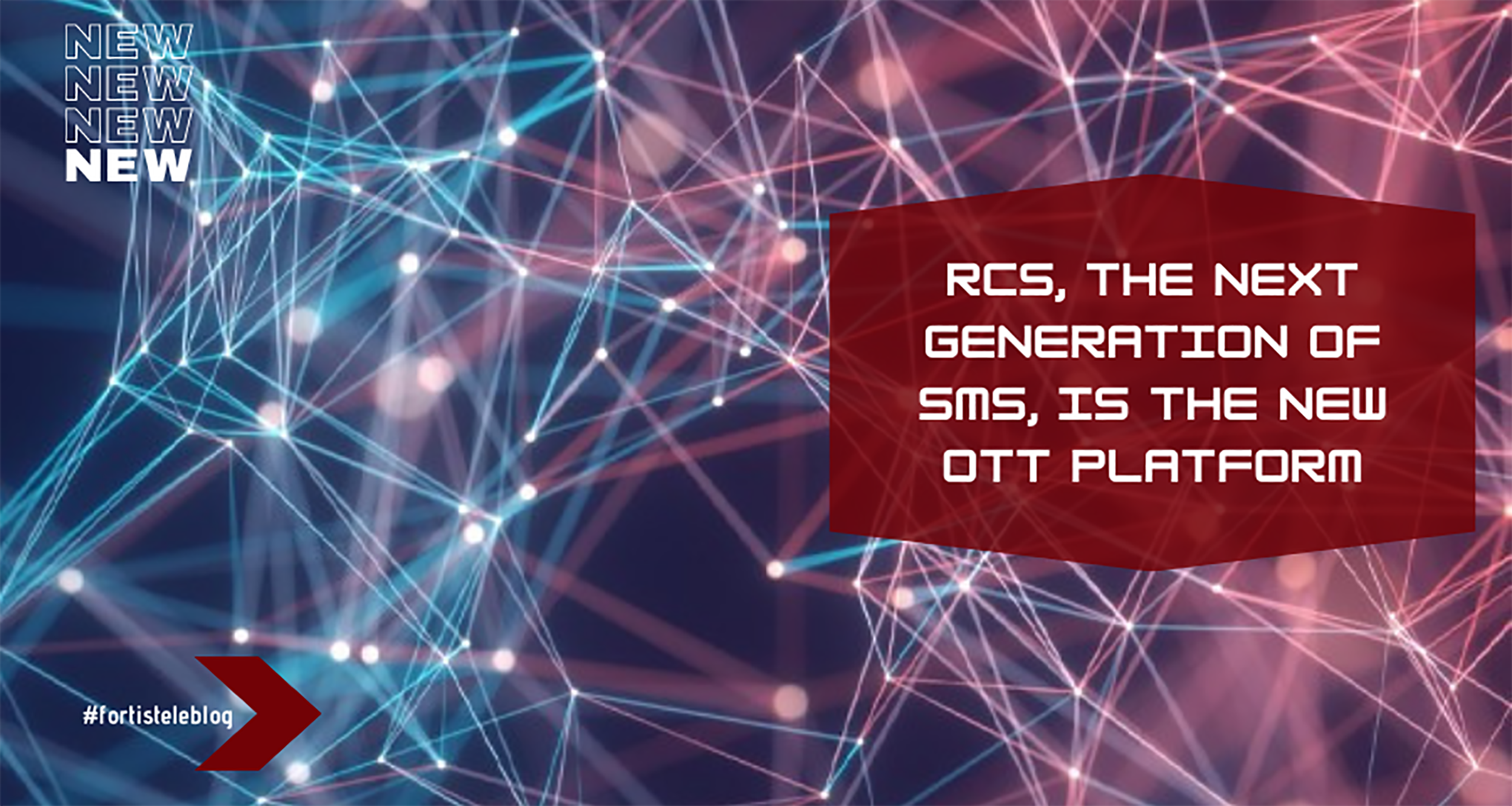Messaging has emerged as the consumers’ preferred mode of interaction with brands. Business Messaging can longer be confined to the plaintext SMS that cannot support the sharing of rich media or two-way interaction between brands and their customers. This, however, does not mean that the SMS has lost its sheen for business messaging. The SMS has an advantage over all other apps in terms of the active user base across the globe, which is higher than any OTT app. Enriching the SMS with features on par with the OTT apps, gives brands access to a broader customer base – both existing and prospects – and offers users with the new age messaging experience.
SMS as a minor part of RCS
It is estimated that SMS has over 5 billion active users globally, which is more than the world’s most popular OTT messaging app – WhatsApp – that is estimated to have in excess of 2 billion. Further, people may find it cumbersome to download new apps; what if the native SMS messaging app of the phones could be leveraged to enable all the features supported by an OTT app? The opportunities are abundant and that is exactly what the Rich Communication Services (RCS) focuses on. RCS is a form of IP messaging that supports the sharing of high-resolution photos, videos, location, group chats, read receipts, and typing indicators, among several other functions, along with end-to-end encryption. Sometimes referred to as SMS 2.0, RCS works inside the Android Messages and Samsung Messages apps that are also the default SMS apps on Android phones. While RCS is the messaging standard in 5G networks, it also works in 3G and 4G networks.
RCS and RMB Understanding
The RCS Business Messaging (RBM) – the A2P and P2A communication using the advanced features of RCS – has started gaining traction across the ecosystem. Business messages sent over the RCS channel incorporate all the features commonly found in OTT channels and much more, such as brand logos, trust marks, rich cards, carousels, read receipts, and more. In short, RBM enables an OTT app-like experience on the phone’s native messaging app. It features suggested user responses to eliminate the need to type a response, and the suggested action buttons that add to the conversational experience by leveraging the phone’s inbuilt functionality, such as calendar, phone calls, and web browsing. RCS even supports the development of chatbots, pretty much like the OTT platforms such as Telegram and WhatsApp. The security and encryption standards adopted by RCS are indeed robust. While critics highlight the lack of support from Apple to RCS that restricts its availability to just the Android platform, it is important to note that RCS being the messaging standard for 5G gives enough reason for the markets to be optimistic about the iOS platform supporting RCS/RBM in the not-so-distant future. Over 700 million RCS users exist across the globe, and the number is only increasing, thanks to the ever-increasing number of devices and carriers supporting RCS.
RBM provides an excellent opportunity for the carriers to monetize their investments on RCS. T-Mobile, Verizon, Vodafone, Orange, British Telecom, Telefonica, Claro, Docomo, Softbank, Airtel, Jio, 9Mobile, Africell, among several others, are just some of the major carriers that have made rapid strides in rolling out RBM. Several other carriers across the North and South America, Europe, Africa, and Asia have also rolled out, or are rolling out RBM, for brands to leverage. To implement RBM, the carriers are implementing RCS servers and MaaP (Messaging-as-a-Platform) from Google, Mavenir, Dotgo, and WIT Software. Google and Dotgo have come together to offer a cloud platform combined with managed services to facilitate quick implementation and monetization of RBM.
RCS and API Integration
The growing RCS reach across the globe has prompted brands from across the world to catch up with the trend and migrate from the old school SMS to the new age RCS using the APIs provided by companies such as Gupshup, Twilio, Sinch, and Infobip, among others. These companies provide APIs that brands can leverage to enable a top-notch customer experience from within their business applications for use cases such as:
- Transactional Messages – Application-to-Person (A2P) Messages used to send notifications, alerts, one-time passwords, service messages, etc.
- Marketing and Promotional Messages – Application-to-Person (A2P) Messages used to send marketing messages, such as product announcements, sale announcements, promotional offers, coupons, etc.
- Conversational Messaging – Two-way messages (A2P and P2A) that are part of chatbots for customer engagement, sales, support, and help from live agents.
Contributing to the dynamism of the RCS domain is its competitive pricing. P2P messaging on RCS is free, akin to P2P messaging on OTT apps. For A2P/P2A business messaging, the pricing models adopted allow for a single price for all messages sent within a conversation with a consumer, typically for a period of 24 hours. For special services such as sharing OTPs and other notifications the price points have been extremely competitive—often in sync with that of the regular SMS. Another advantage enabled by RCS is that it adopts the pay-on-delivery pricing, wherein brands pay only for messages that are successfully delivered to the intended recipient, unlike the SMS where the sender is billed for messages sent, without consideration into whether they are delivered or not. Further, as RCS supports long messages, multipart messages can be combined into one, the cost incurred on sending numerous messages can be reduced, which makes it economical for brands.
The industry has taken cognizance of the potential held by RCS that is evident in the market growth predictions made by agencies such as Juniper Research and MobileSquared. The latter predicts the number of RCS/RBM users to touch 5 billion by 2028, with the global RBM traffic crossing a whooping 1.2 trillion. There is a large market that can be tapped into.
Source:https://www.thefastmode.com/technology-solutions/21586-rcs-the-next-generation-of-sms-is-the-new-ott-platform

